How we’re making sustainable thinking intuitive to the early years learner at Maple Bear Nursery
As educators, today we have a responsibility not just to teach students the importance of the environment, but also to ensure they are taught the necessary strategies to tackle the problems our planet faces. To thrive, 21st century students must be empowered to take on the challenges of the future.
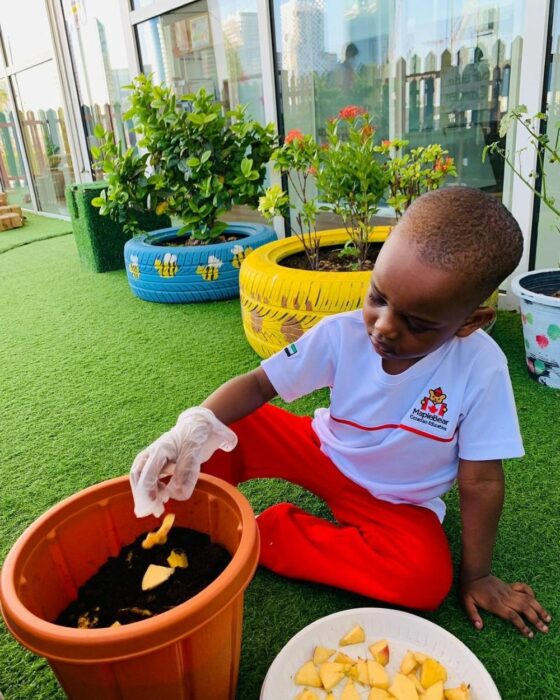
We know that when it comes to environmental issues, human action and habits play a tremendous role. While the challenges may be monumental, the good news is that we’re never too young to build positive habits and to have a transformative impact on the planet.
Here are 5 things that Maple Bear nurseries are doing around the UAE to show the next generation the way to a more sustainable future.
Upcycling arts and crafts supplies
Not only is it great to extend the life cycle of the range of materials and supplies we use in the classroom, but we’ve found that it’s a great way to get families engaged in the creative process in the classroom too. Each month, our teachers take time to organize scraps and match partially consumed supplies to ensure waste is minimized, while also asking parents to send in packaging and domestic cardboard waste that would otherwise be discarded. The students love the process of creating a bespoke aesthetic, made even more special through the personal contribution they know their mom and dad have made to the project or the class.
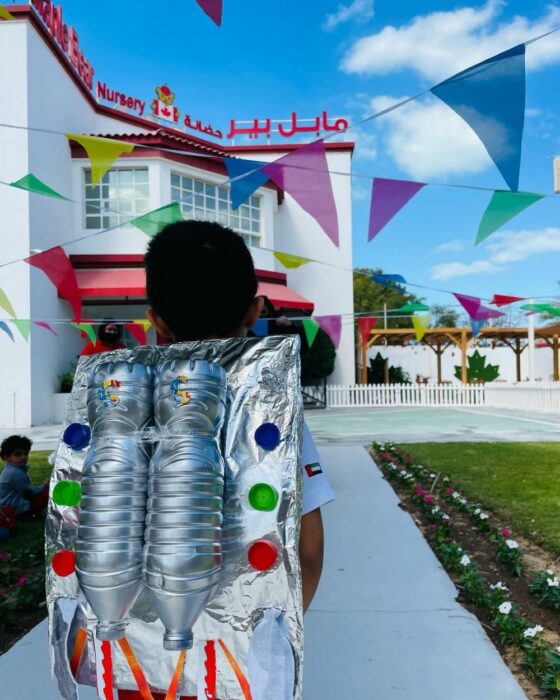
Showing the power in power conservation
There’s no denying that our lifestyle in this part of the world depends on high energy consumption. While it wouldn’t be practical to go without air conditioning or lights at most times, there are little things that can be done to give the planet and the atmosphere a break.
Each of our classrooms takes a ‘cool down’ break during the day. The objectives of this are twofold: teachers arrange the kids in a group learning seating or relaxed stance, and with the lights switched off, a few moments of mindful breathing and inward focus, or cooling of thoughts, takes place, accompanied with verbal acknowledgement of the part we have played in saving energy and giving the planet a moment to cool down as well.
With DubaiCan, we all can reduce plastic
We are fortunate that sustainability and planet focused thinking is a passion for our leaders here in the UAE. With the launch of the DubaiCan initiative, we refreshed our own relationship with water at the school. While water dispensers have always been available for our teachers and students, DubaiCan gave us a renewed push towards discouraging single use plastic bottles. Teachers now look at each water refill request as a high-five moment, recognizing the child’s responsible choice with enthusiasm and noting the effort as a collective win for the earth and the animals we share it with.
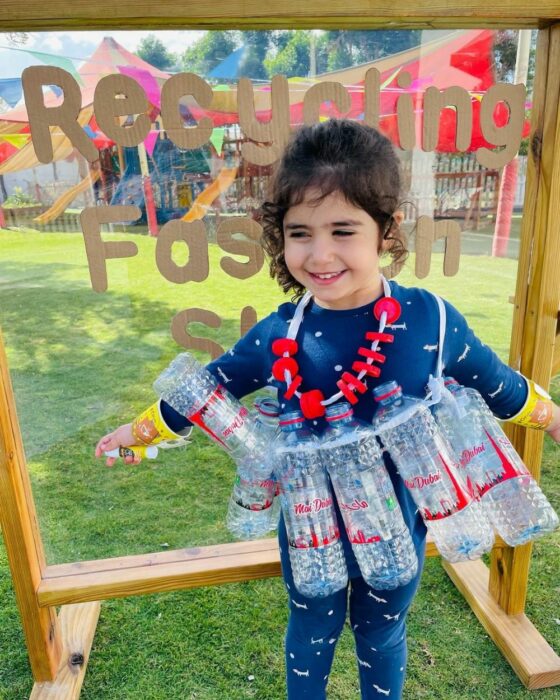
Getting those little thumbs green
The vegetable garden has quickly become a favourite part of the preschool for students and teachers alike. Especially during the cooler months, or planting season as it is known to us, our students learn how to plant, nurture, grow, and harvest vegetables in the school yard. Not only are they connecting with nature and witnessing firsthand the plant life cycle, but they are simultaneously gaining awareness of how much love and effort it takes to grow food – so much of which goes to waste so often – as well as seeing that food that doesn’t travel as far to get to their plate is better for the planet.
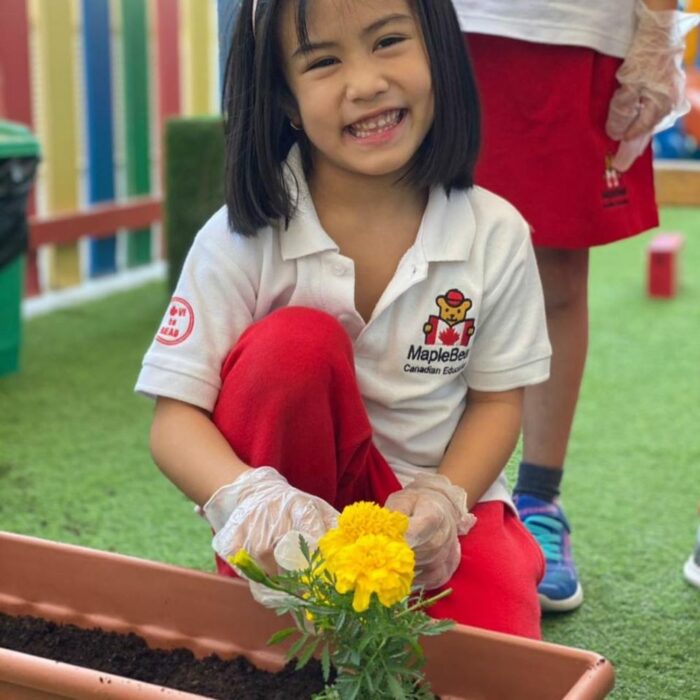
Food composting to show the magic of organic
Small may it be, the food compost at each of our schools is a unique experience for the students who are typically used to simply tossing food waste in the bin. The benefits of composting are many, but for little students, composting is a great way to encourage smarter consumption habits, as the transformation of the food peels and scraps into soil really demonstrates what the risks are of overburdening the planet with non-organic waste. The added joy of using the compost to nourish the plants we are growing in the garden really seals the deal with the kids getting to play a part in making their plants and vegetables even more healthy and strong.
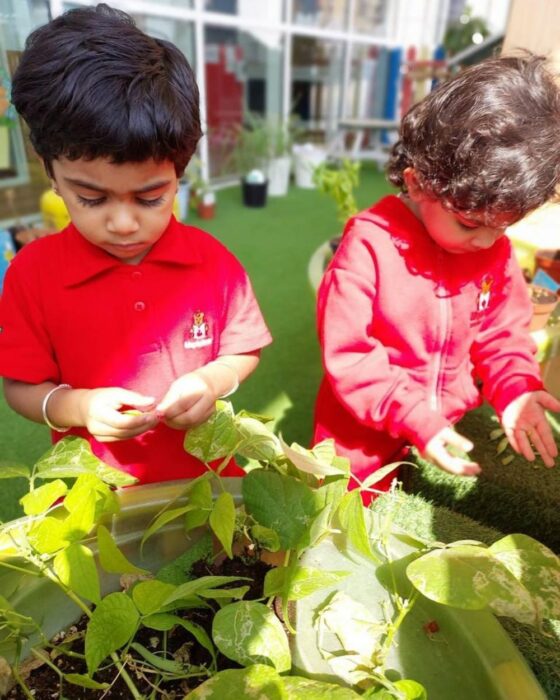




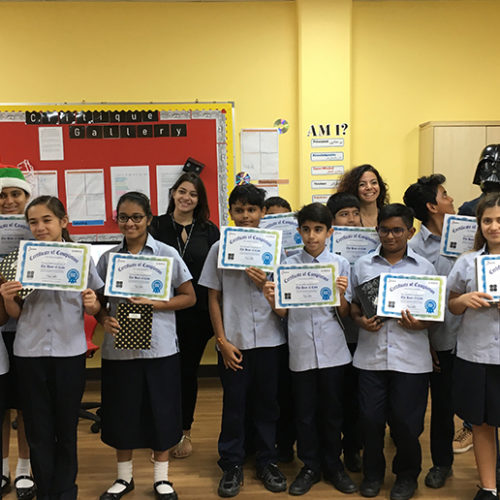






Comments